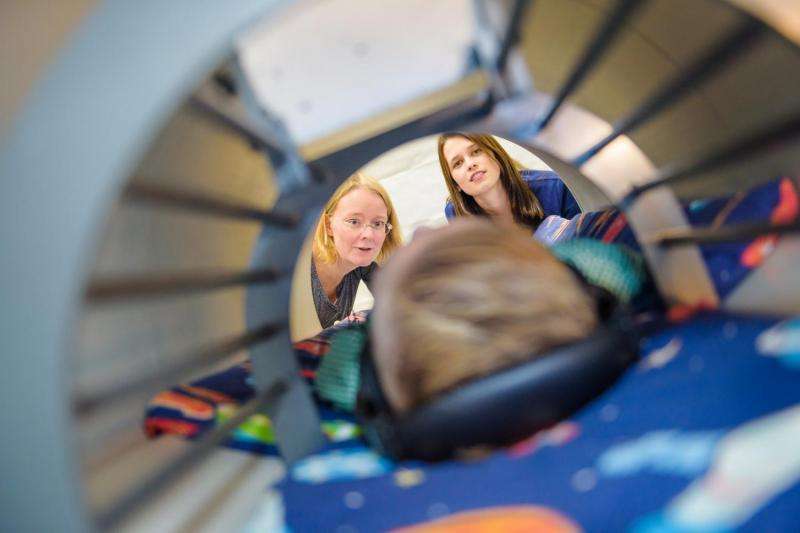How children perceive faces—seven-year-olds show different brain activities than adults

Humans are experts in facial perception. But not from birth. At which point do children become as skilled at it as adults?
Seven-year-olds show different brain activities than adults when it comes to facial perception. This is reported by the workgroup Developmental Neuropsychology in the Ruhr-Universität Bochum's science journal Rubin. The results don't support the theory that brain areas that are specialised for facial perception are fully developed at the age of five.
Brain gets used to faces
Prof Dr Sarah Weigelt and Marisa Nordt compared habituation effects in adults and in children that occurred when viewing portrait photos. They recorded the brain activity in the so-called Fusiform Face Area using functional magnetic resonance imaging. If test participants are repeatedly presented with the same photo of a face, the brain activity in that brain region decreases. The habituation effect does not occur if the photos show different people. The researchers identified these results in children as well as in adults.
Differences became apparent when the psychologists presented the participants with several photos of the same person in quick succession. In adults, a habituation effect set in that wasn't as strong as the one occurring during viewing of identical photos of one person. The mean result for seven-year-olds was the same. "A closer look reveals that the results in children were caused by a different factor," says Sarah Weigelt.
Same effect, other causes
Together with her colleague, she analysed the data of individual test participants. If adults were shown different photos of the same person, a habitual effect set in that was less strong than when viewing identical photos of one person. While some children did not present any habituation effect at all, others presented a fully-developed one.
"If children see different photos of one and the same person, they appear to say either: this is the same person. Or: these are two different people," elaborates Weigelt. "There is nothing in between." The results thus illustrate that even though seven-year-olds are able to recognise faces, that skill is not fully developed yet.
More information: rubin.rub.de/en/how-children-perceive-faces



















